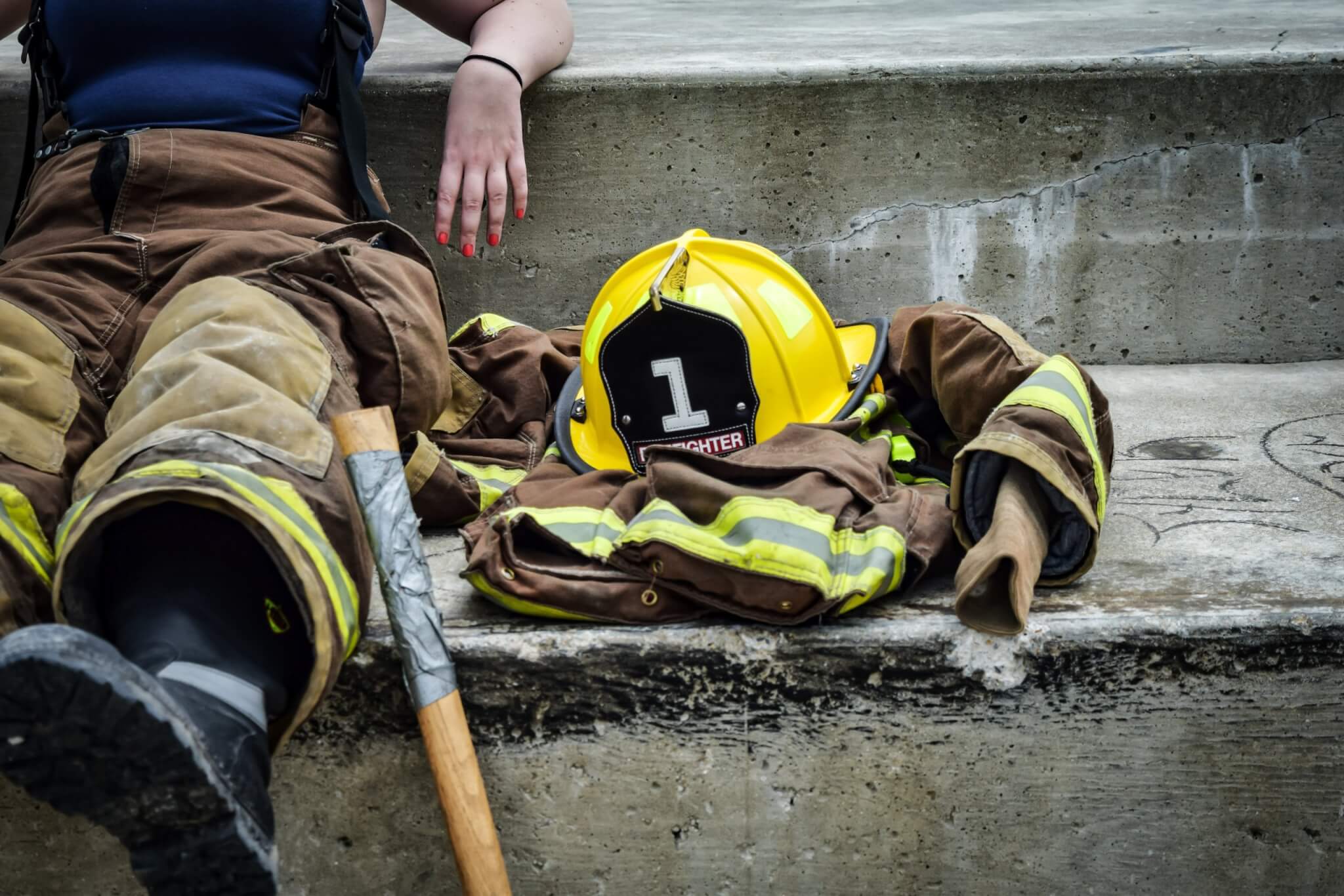Job-related stress keeping you up at night? If you’re already dreading tomorrow’s workday you’re not alone — and we don’t have to tell you that it’s unhealthy. Many people feel that their job is the most stressful of all jobs, but are they right? The most stressful careers combine high emotional and mental tolls with often meager pay for those who work in the field. We searched the web to find the consensus on the most stressful careers according to experts. Before we find out if your job made the list, let’s talk about the American breaking point.
By now the Great Resignation is a well-known movement. In the last few years many people have left jobs in search of better conditions, believing they deserve a career that better aligns with their values while promoting a healthier work-life balance. And there’s research to back it up: “It turns out more than one in four people have quit their job for the sake of their mental health.” That’s right, a study reveals that “in a poll of more than 2,000 working Americans by career guidance service JobSage, researchers found that 28 percent say they’ve left a job in the last two years because of its impact on their mental health. Nearly two in five Americans have considered quitting for this reason.” But hey, it’s not like your job can actually kill you, can it?
Unfortunately, your job might be more detrimental to your health than you think. According to this study, “researchers warn that burdensome demands at the office mixed with lack of job control can lead to depression — and potentially death — for struggling employees.” Researchers point to lack of autonomy and lower cognitive abilities as the reasons for the adverse effects. But it seems that one reason has a larger impact: “The main culprit here appears to be lack of control or autonomy. More professional responsibilities or expectations were actually found to improve overall health and lower one’s risk of death when combined with more freedom while at work.”
Ready to find out if your job is on our list? Below is our list of the five most stressful careers. Our list contains the top choices across eight expert websites. We want to hear from you! Comment below to let us know which other careers you think belong on the list!

The List: Top 5 Most Stressful Careers, According to Experts
1. Surgeon
It’s no surprise that this career sits atop the list. There is no room for error in a surgeon’s daily work. The work performed is very much often a matter of life or death. The consequence of a mistake could mean potentially causing a patient serious harm if things go wrong. Glassdoor writes that “surgeons earn lucrative salaries, but they work in very high-pressure, life-or-death situations. They have to train for long years to qualify, and after qualifying, surgeons work long hours operating on several patients throughout the day. The job requires focus, mental and physical strength, and a strong stomach.” It’s true that the stress with this career starts when the career path is chosen. Even the act of attempting to become a surgeon is filled with stress.
“Surgeons operate on patients, treat injuries, and deal with several hiccups and unexpected circumstances during an operation. They have the added stress of not making a wrong decision that can result in a fatal error,” writes Career Addict. It’s true that many times surgeons don’t fully know what they’re dealing with until they open the patient up, so unexpected surprises certainly come into play. In-the-moment decision making is critical in these instances.

Goodwall Blog writes that “it’s a surgeon’s job to perform operations dealing with the smallest nuances of the human’s body — in many ways, they determine whether or not a person will live or die. They have to obtain vast knowledge and experience, and many specialize in certain problems or conditions: you can meet neurosurgeons, critical care surgeons, or vascular surgeons.” And they go on to raise some excellent points about this profession: “Have you ever heard of certain surgeries only having a fifty percent success rate? Some operations are so difficult that not every surgeon can pull it off. And, there is always a risk of complications even during the most mundane procedure. You can only imagine the sort of pressure someone who does this must undergo.”
2. Police Officer
This profession that has become even more stress-filled in the last few years. Policing is often a thankless job and officers know this when taking the oath. Though many citizens respect police officers and the work they do, many more would be happy to watch the career disappear. Business News Daily writes that “Kyle Kensing, online content editor for CareerCast, said the specific factors his company uses to measure the stress level of an occupation were the most prevalent in military service, police work and firefighting more than any other career.” Included in these factors are: “physical demands, on-the-job hazards, environmental conditions, [and] the risk of personal injury or injury to another for whom the worker is directly responsible.” These factors can be faced by police officers on any given shift.
“If your job consists of potentially putting your life on the line every time you punch in, that’s stressful,” writes Salary.com. They go on to note that “police officers never know what they’ll be dealing with on any particular shift. From breaking up domestic disputes to high-speed chases to shootouts, it’s all on the table. Even routine speeding tickets can turn deadly at a moment’s notice, which is why police officers can never drop their guard for a second.”

U.S. News & World Report writes that “patrol officers are called on for emergency and nonemergency duties. They have a regular beat and focus on law enforcement tasks, staying vigilant wherever they are. Exposure to violence, crime and the physical demands of the job contribute to stress levels.” And staying vigilant they must as officers have become the target of many attacks in recent years.
3. Firefighter
Firefighters know that by signing up they are potentially signing up to risk their own lives to save those of the citizens they serve. These same men and women that run into burning buildings are also the ones pulling mangled bodies from car wrecks. “Firefighting is not only risky, but it’s also hard,” writes Glassdoor. They note that “firefighters must pass exceedingly rigorous physical tests, endure skin-evaporating heat, and risk being crushed in burning buildings while trying to save people.” And let’s not forget that “they also play a pivotal role during and after natural disasters, such as hurricanes and floods, trying to get people to safety while risking their own lives.”
And from Goodwall Blog: “Firefighters have one of the most stressful jobs in the world, hands down. They have to face one of the most famous unstoppable forces in nature and reduce its impact on the human world. Firefighters have to deal with collapsing houses, hazardous chemicals, smoke, and fire itself. Not only that, but they have to save lives in the meantime.” They also remind us “that a firefighter has to stay on duty around the clock and has to be a night owl as well.”

Career Addict writes that “working through blazing fires and unknown circumstances ends up paying a toll on the emotional wellbeing of a firefighter. Each day brings new challenges by not knowing the severity of a fire scene or how many people they will need to rescue in one day. Last-minute shift changes can also add a strain on their personal lives, as they won’t be able to make any plans in advance.”
4. Social Worker
Helping others through crisis is no easy task, nor is leaving work stress at work in this profession. Social workers often see many unfortunate sides of life; they help people young and old that face challenging and often heartbreaking situations. U.S. News & World Report writes that “clinical social workers provide therapy to individuals and groups. They may also coordinate treatment plans with health care workers. Having enough staff to cover large caseloads can make this a stressful role, as well as the emotional toll. Aiding individuals and communities with abuse, poverty, unemployment and other issues may be a part of the job, which can also lead to stress.”
Social workers “provide individuals, families, and groups with the psychosocial support needed to cope with chronic, acute, or terminal illnesses,” writes SILive.com. They share that “services include advising family caregivers,” and “[providing] patients with information and counseling and [making] referrals for other services.” They also note that social workers “may also provide case and care management or interventions designed to promote health, prevent disease, and address barriers to access to healthcare.”

“Imagine being placed into emergency situations where potential abuse or violence is taking place. No one else wants to step in, so it falls on you to deal with the aftermath, and you’re getting paid peanuts. This is life as a social worker,” writes Salary.com. They also share that “social workers have to advocate for those who are often in dire straits and dealing with one or more crises. While they have the opportunity to help families plan next steps and offer education on various topics, they must also witness and empathize with those in heartbreaking situations. Social programs are generally underfunded yet demand is constantly growing, causing fewer dedicated social workers to do more work with less support.”
5. Paramedic
Imagine knowing all the addicts in a city. Or, imagine bringing the same addict back to life multiple times after repeat overdoses. This is part of what a paramedic signs up for, being selfless, reserving judgement, and saving lives day in and day out. Career Addict writes that “being a paramedic is an extremely stressful and emotionally challenging job — you never know what you’ll face when responding to an emergency. Writing for the Guardian, a paramedic working for the NHS says: ‘4 of the 30 paramedics at my ambulance station have been off with stress over the last few years. They just couldn’t face coming in for another run of 14- or 15-hour shifts.’”
“Paramedics have a stressful job because they have to witness some of the most gruesome scenes that human life has to offer. Someone needs to take injured people and bring them to the hospital, and those people don’t have the benefit of getting time to prepare for what they’re about to see,” writes Goodwall Blog. They go on to share that “paramedics have to operate fast and are constantly aware that lives are on the line. They don’t always get there in time, and watching people die is a large part of the job.” “On top of this,” they write, “paramedics are on call for a lot of the time they aren’t working. It’s hard to settle yourself into a routine and get good sleep, knowing that you might get called to help out at any point.”

Glassdoor writes that “while some people thrive in high-pressure emergency situations where paramedics work, it can crush others. Paramedics respond to emergencies where people need fast medical care. It might be an accident scene, the aftermath of a shootout between rival gangs, or a severe asthma attack at a local school. These professionals treat patients with the meager resources an ambulance offers until the person can be safely moved to a hospital with better facilities.”
You may also be interested in:
- Best Of The Best Stress Supplements
- Best Careers For 2023
- Best Delivery Apps To Work For
- Best Jobs For Seniors
- Happiest Jobs of 2023
Sources:
- Business News Daily
- U.S. News & World Report
- SILive.com
- Career Addict
- Salary.com
- Goodwall Blog
- Glassdoor
Note: This article was not paid for nor sponsored. StudyFinds is not connected to nor partnered with any of the brands mentioned and receives no compensation for its recommendations. This post may contain affiliate links.

I would argue that “air traffic controller” would be a very stressful job.
You have never sold insurance